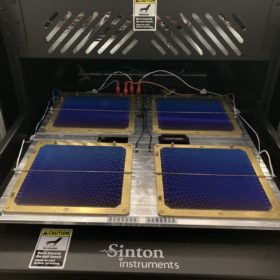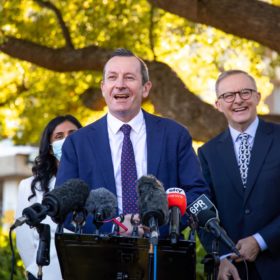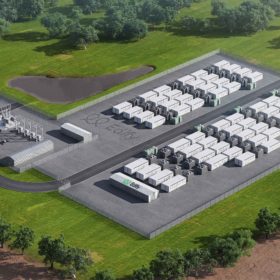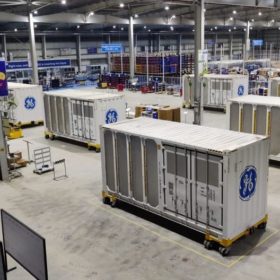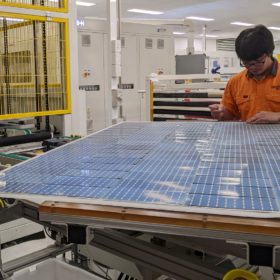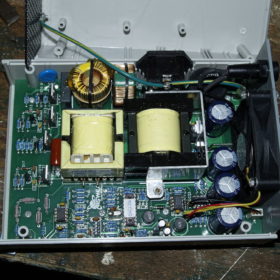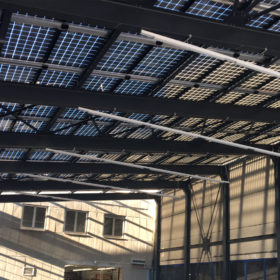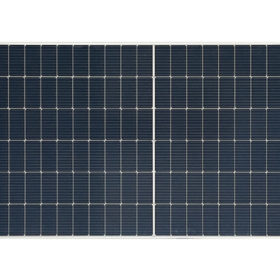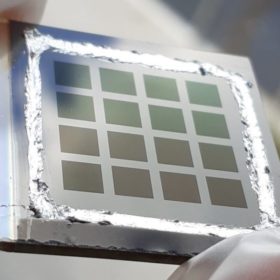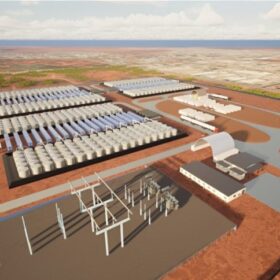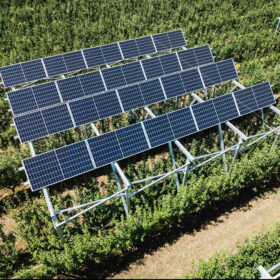Solar cell efficiencies at a glance – updated
A research group led by UNSW’s Professor Martin Green has published Version 60 of the Solar cell efficiency tables.
Western Australia to exit coal by 2029 in response to competition from solar
Western Australia is set to exit coal-fired power by the end of the decade as state-owned power provider Synergy will close its two remaining coal plants by 2029 in response. Western Australia Premier Mark McGowan said coal was no longer viable due to the high-penetration of solar, particularly rooftop. McGowan also announced a $662 million boost for the coal-town of Collie’s industrial transition and $3.8 billion in statewide renewable investment, with a focus on energy storage.
Edify secures financing for series of grid forming batteries in NSW
Edify Energy has completed the financing for its grid forming 150 MW / 300 MWh battery energy storage system. The system will be made up of three separate batteries in the Riverina region of NSW which have gained approval to operate in ‘virtual synchronous generator’ mode.
General Electric to triple solar, battery production capacity in India
The US multinational will expand the solar and battery energy storage manufacturing capacity at its factory in Tamil Nadu to 9 GW per annum by the end of 2022. The factory manufactures the FlexInverter power conversion solution and the FlexReservoir utility-scale energy storage systems.
Tindo Solar offers working-capital solution for installers
Solar installers and resellers can now access up to $250,000 on interest-free terms to increase their stocks of Australian-made solar panels after PV module manufacturer Tindo Solar teamed with business financer Moula Pay.
New model for grid-forming inverter operation
Scientists in the United States have developed a new model to allow utilities to use grid-forming inverters in order to better manage renewable energy intermittency. They describe the inverter main circuit representation, the droop control, and the fault current limiting function.
Megasol reveals new solar PV in-roof system
Swiss module manufacturer Megasol has unveiled a novel rooftop PV system in two variants — full-black and translucent. The installation consists of vertical supports, a ridge profile, and solar modules.
Solar highway noise barriers to be deployed across North America
Buildings-integrated photovoltaics maker Mitrex plans to deploy highway noise barriers with integrated solar that have 1.2 MW of capacity per kilometer. The technology is currently in the pilot phase at government entity locations in North America.
SDN launches 550W solar module with 21.28% efficiency
The Korean manufacturer launched a new bifacial module based on M10 wafers and is planning to produce bigger modules based on M12 wafers starting from the third quarter.
Silver-alloyed CIGS solar cell with transparent indium back contacts, 12% efficiency
Scientists in Sweden have developed a wide-gap ACIGS solar cell with hydrogen-doped indium oxide (IOH) transparent back contacts and silver alloying to increase the absorber bandgap energy. The device achieved an efficiency of 12.0%, an open-circuit voltage of 835 mV, a short-circuit current of 22.1 mA cm2, and a fill factor of 65.2%.
